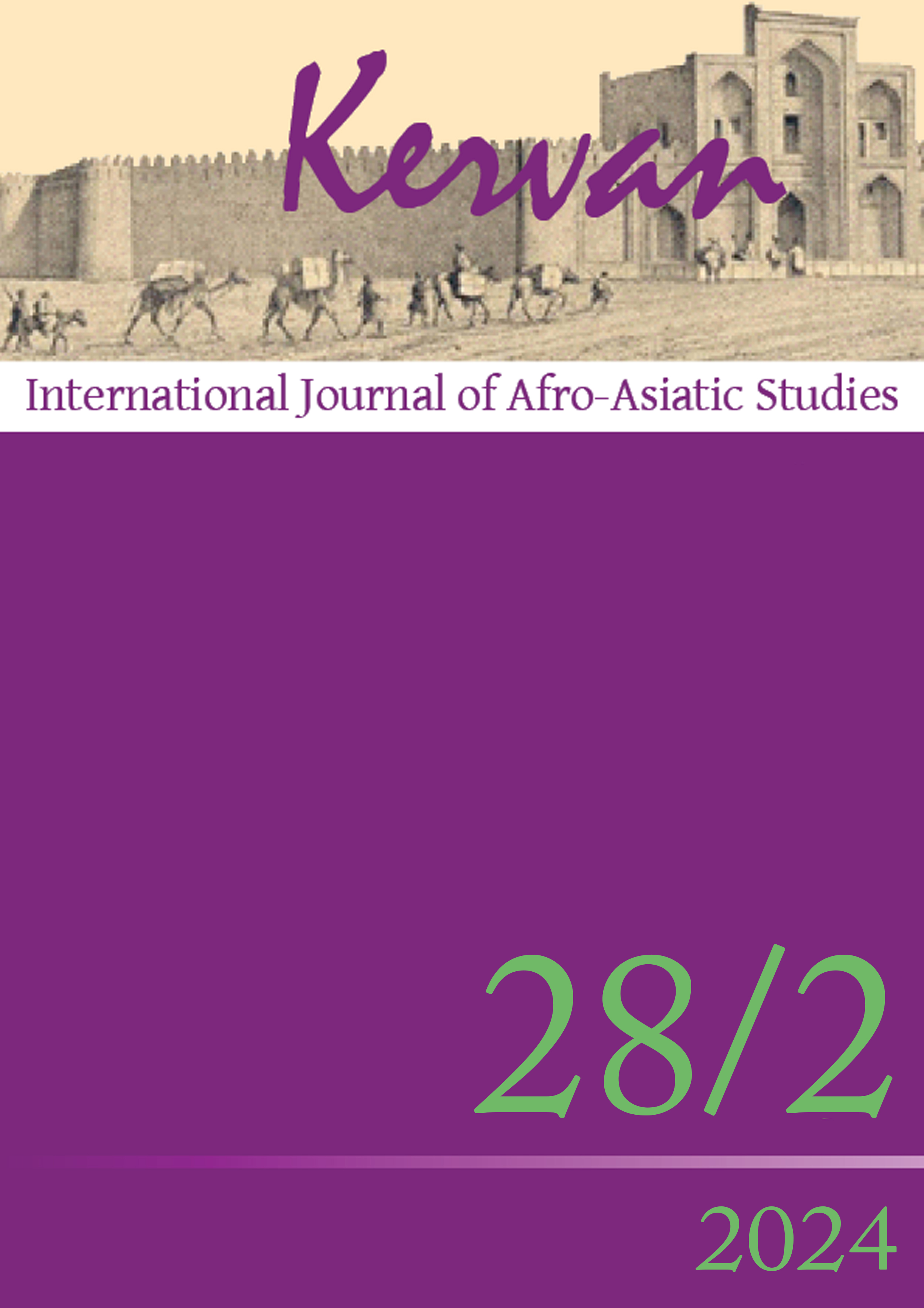Vegetarianism in Modern Arabic literature
DOI:
https://doi.org/10.13135/1825-263X/11463Abstract
If it’s so rare to see vegetarian characters in the international fiction, it’s even rarer in the contemporary Arabic narratives. Yet it’s common to find them in classic Sufi and religious literature (al-Rūmī, al-Ma‘arrī, Iḫwān al-Ṣafā’) and collections of tales. After a historical survey about the Prophet’s and Sufis’ positions on vegetarian food, excerpts from Kalīla wa Dimna and other fables, we start with Maḥfuẓ’s Bidāya wa Nihāya (“The Beginning and The End;” 1949), where vegetarianism comes “from necessity,” is marginal and treated with humour. The real focus of this article is the novel Nazīf al-ḥağar (“The Bleeding of the Stone;” 1991), by the Libyan writer Ibrāhīm al-Kawnī. From Sufism it draws its themes and suggests sustainable models for human interactions with nonhuman animals and environments. This novel helps us to link ecocriticism, in its vegetarian/ vegan declinations, with decolonial or postcolonial theory. Apart from that, it can be analyzed through the lens of eco-feminism, human-animal studies and biopolitics approaches. To better understand the context that underlies vegetarianism in the Arabic literary arena, I try to analyze two other contemporary novels that offer interesting insights and perspectives, even if they don’t present this theme as pivotal. Min ḫašab wa ṭīn (“Made of wood and clay;” 2021) by the Moroccan writer and poet Muḥammad al-Aš‘arī, suggests a selective vegetarianism, connected to a perspective of ecocritical philosophy of life, adopted by two socially different characters. The last text to be analyzed in this article, Krīsmās fi Makka (“Christmas in Mecca;” 2019), by the Iraqi writer Aḥmad Ḫayrī al-‘Umarī, carves a young vegan character to shed light into issues of social identity in the Western countries diaspora.
Downloads
Downloads
Published
Issue
Section
License
Gli autori che pubblicano su Kervan accettano le seguenti condizioni:
- Gli autori mantengono i diritti sulla loro opera e cedono alla rivista il diritto di prima pubblicazione dell'opera, contemporaneamente licenziata sotto una Licenza Creative Commons - Attribuzione che permette ad altri di condividere l'opera indicando la paternità intellettuale e la prima pubblicazione su questa rivista.
- Gli autori possono aderire ad altri accordi di licenza non esclusiva per la distribuzione della versione dell'opera pubblicata (es. depositarla in un archivio istituzionale o pubblicarla in una monografia), a patto di indicare che la prima pubblicazione è avvenuta su questa rivista.


 The articles that have appeared on Kervan since 2016 are rated as Class A in the system of National Scientific Qualification (ASN, disciplines 10/N1 and 10/N3).
The articles that have appeared on Kervan since 2016 are rated as Class A in the system of National Scientific Qualification (ASN, disciplines 10/N1 and 10/N3). The journal has been approved for inclusion in DOAJ. The DOAJ listing of the journal is available at
The journal has been approved for inclusion in DOAJ. The DOAJ listing of the journal is available at  The journal has been approved for inclusion in ERIH PLUS. The ERIH PLUS listing of the journal is available at
The journal has been approved for inclusion in ERIH PLUS. The ERIH PLUS listing of the journal is available at  Kervan was just accepted for indexing in SCOPUS. This important milestone ensures that articles published in Kervan are easily found when searching for library, archives and Information science and it enables Kervan authors to keep track of how often their article has been cited by others.
Kervan was just accepted for indexing in SCOPUS. This important milestone ensures that articles published in Kervan are easily found when searching for library, archives and Information science and it enables Kervan authors to keep track of how often their article has been cited by others.

